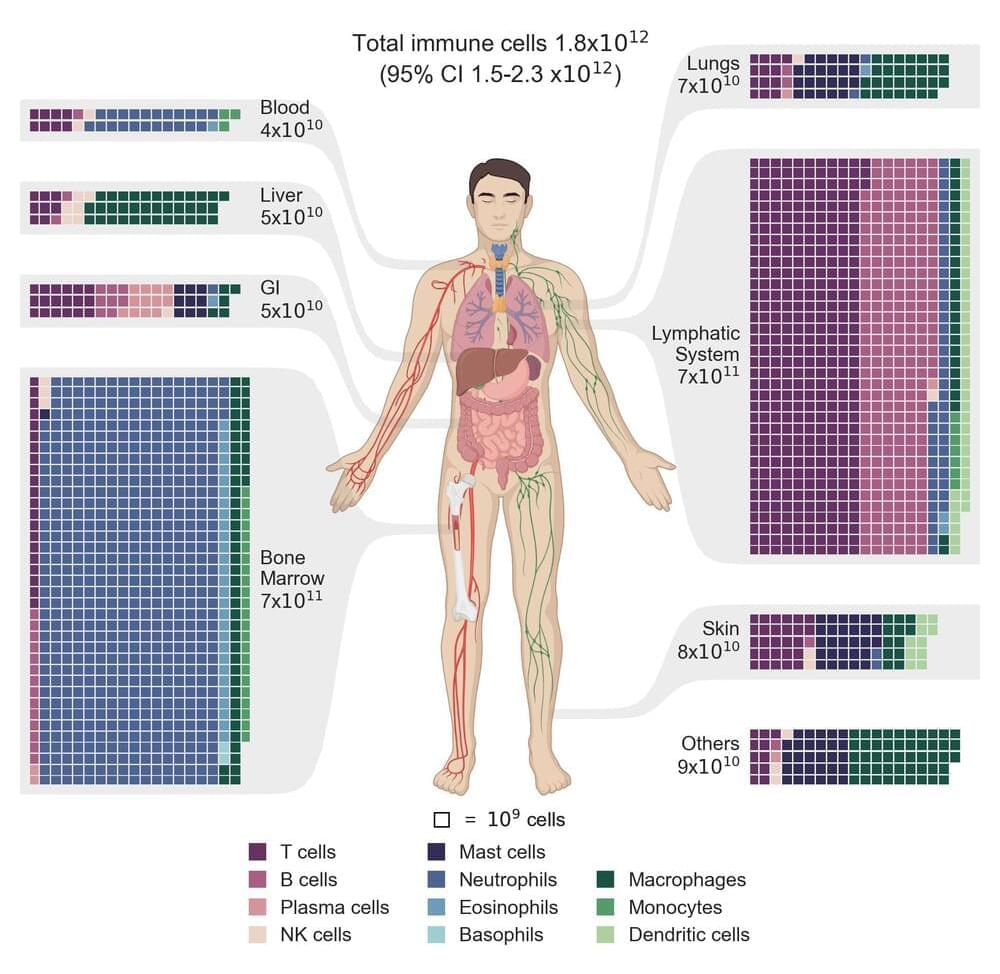A team of environmental and molecular biologists at the Weizmann Institute of Science, working with a colleague from the Edmond and Lily Safra Children’s Hospital and another with The Hebrew University-Hadassah Medical School, all in Israel, has conducted a census of the immune cells that reside in the human body. The group describes their endeavor in a paper published in Proceedings of the National Academy of Sciences.
Prior research has shown that there are many kinds of immune cells in the human body and that they reside in different locations. Most if not all of them have been identified as well. But until now, it was not known how many of each type of cell exist in the average human body, how much room they take up or how much they weigh. In this new effort, the research team filled in that gap by conducting a three-pronged survey of immune cells in three types of average human bodies—a grown male, a grown woman and a child.
The three-pronged approached involved first studying available literature to obtain as much data as possible regarding the different types of immune cells. The second part involved conducting cell imaging to categorize cell phenotypes and complex immune cell types—a means of describing how much room different immune cells take up, wherever they may live. And the third part consisted of computational techniques to estimate cell numbers in different parts of the body, with which the team was able to calculate weights and mass.
